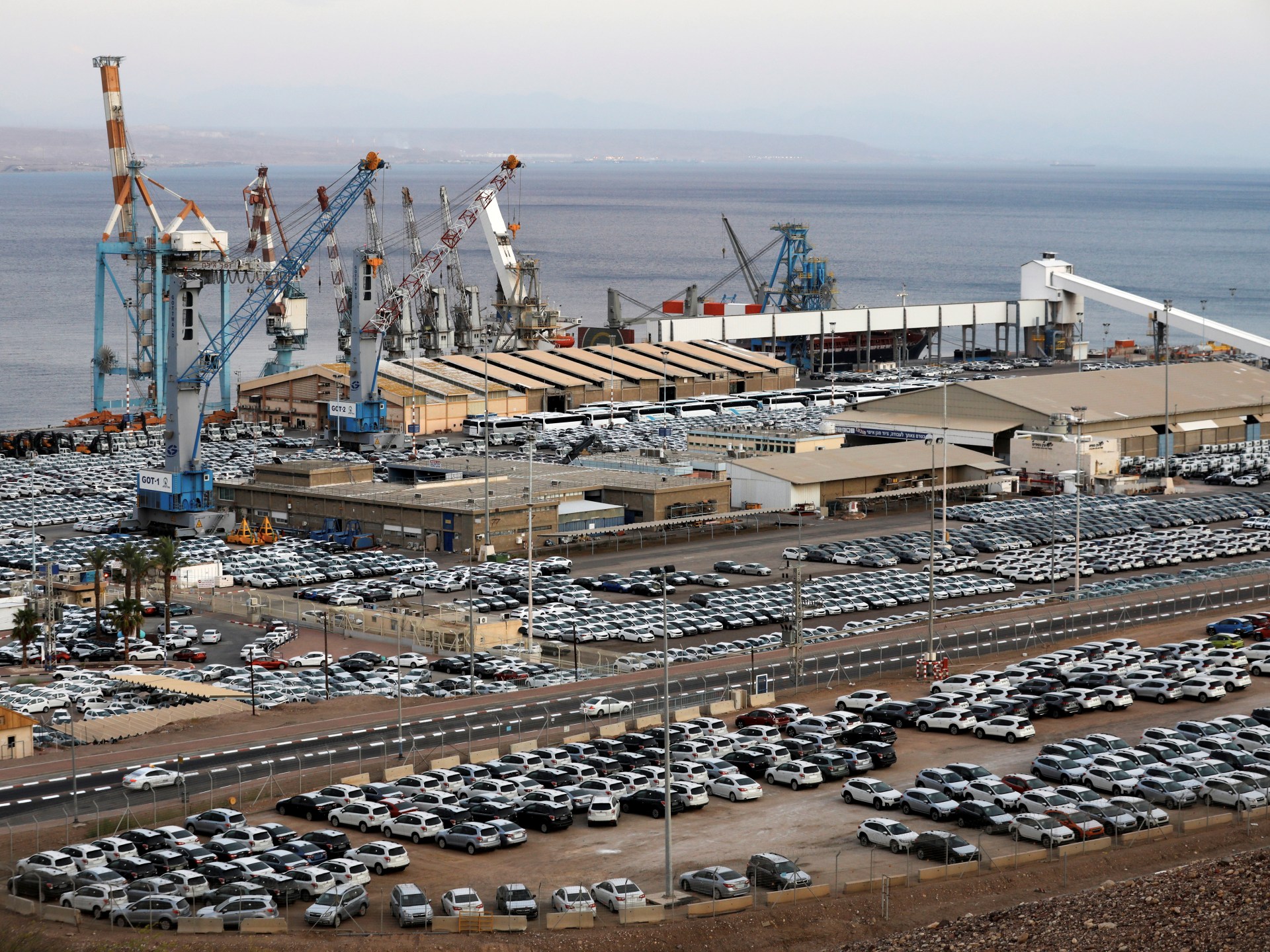Eilat Port is the main gateway for importing cars (Reuters)
The stagnation of work in the port of Eilat (south) has caused tremors in the Israeli car market, as the repercussions are expected to hit it hard in the coming months. The Israeli newspaper Calcalist says that while not a single car was unloaded in the port of Eilat in the period from January to February. Last February, the port of Haifa (north) became the main gateway for car imports to Israel, but the latter also failed to compensate for the significant decline in the number of imported cars.
The port of Eilat is located on the northern end of the Red Sea, and was one of the first ports to be affected after shipping companies changed the course of ships to avoid attacks by the Yemeni Houthi group in the Red Sea.
The newspaper indicates that those interested in importing cars are preparing for a shortage in the latter half of 2024, in addition to the cancellation of previously approved discounts.
Figures issued by the Israeli Ports Authority paint a bleak picture of the automobile sector in the country, according to the newspaper. While only 91 cars were unloaded in the port of Ashdod during this period, only 23,700 new cars passed through the port of Haifa.
Moreover, customs clearance data reflects the period from January to February, where only 34,400 vehicles were released, compared to 46,900 vehicles in the same period in 2023, representing a decrease of 26.7%.
According to the newspaper, this downward trend in car imports is exacerbated by the lack of economic uncertainty resulting from the ongoing Israeli war on the Gaza Strip, which causes orders to be canceled by importers who are concerned about the escalating financial risks.
Eilat Port CEO Gideon Goldberg expressed concern about the situation to Calcalist, saying: “The last ship carrying cars left us with about 55,000 new vehicles stored in and around the port, and today, there are only about 10,000 cars still in storage. In addition, The Israeli government’s demand for continuous access of emergency goods to the ports in the event of a northern war prompted us to allocate areas for this purpose, which led to millions in costs, considering that this represents a major setback.”
Israeli officials said last Wednesday that half of the workers in the port of Eilat in southern Israel are at risk of losing their jobs, after the port was exposed to a major financial crisis as a result of disruption to shipping lanes in the Red Sea.
The port administration announced its intention to lay off half of the 120 employees (Reuters)
The port administration announced its intention to lay off half of the 120 employees, and in response, dock workers organized a protest.
The alternative route to the Red Sea requires going around the southern tip of the African continent via the Cape of Good Hope corridor, which prolongs trips to the Mediterranean for a period of between two and three weeks, and thus increases the cost.
Houthi leader Abdul-Malik al-Houthi pledged to prevent ships linked to Israel from crossing from the Indian Ocean to the Cape of Good Hope, while Washington acknowledged that the group still has a strong arsenal despite the blows it has received.
Source: Israeli press

